Retail Revisited with Harry J. Friedman
Episode 5: What is a Natural Born Salesperson
Podcast: Play in new window | Download (14.5MB)

Are people just born with the raw talent required to become a salesperson? Or is it something that can be developed and trained? In this podcast Harry will deliver his definition of a Natural Born Salesperson and how they can stack up to a well trained salesperson in any business environment.
Retail Revisited with Harry J. Friedman
Episode 5: What is a Natural Born Salesperson

Podcast: Play in new window | Download (14.5MB)
Are people just born with the raw talent required to become a salesperson? Or is it something that can be developed and trained? In this podcast Harry will deliver his definition of a Natural Born Salesperson and how they can stack up to a well trained salesperson in any business environment.
*Disclaimer: This transcription was automatically generated so we would like to apologize for any misspellings or grammatical errors in advance
Justin: Welcome back everyone. I’ve Harry Friedman here once again today I want to chat about a natural-born salesperson. What are the skills that define a natural-born salesperson and what are the skills that we can improve upon to create the best salespeople possible, Harry welcome back.
Harry: Justin, how are you?
Justin: I’m feeling great feeling really good.
Harry: Terrific. Well I love the subject its so many people have asked me about this over the years so whether I wanted to think about it or not I’ve been thinking about it you know. There take a look around there are people that are musically inclined who can pick up instruments and play them fairly quickly artistically inclined people. So I think that you know naturally as human beings we have certain attributes or inherent skills or something that causes us to be you know fairly good at something without even you know a whole bunch of training and development. There are certain people they can get up and hit a golf ball and other people could never hit a golf ball or I think you get what I’m saying so let’s talk about natural-born salespeople. It really has a lot to do with the desire to play the game. So first of all we know that that certain people are offended by the idea of sales people altogether and that’s really just a reaction to having come across some really bad people really bad character actors in the world of selling and their past somewhere and somebody was pushy or aggressive with them and that they naturally retreat or repelled by it. But it’s really a matter of the desire the intent the motivation to play the game and the game is that you meet people and you talk about some product or service in your mind as the sales person’s mind they actually want to cut the deal. Now natural-born salespeople this is a great misunderstanding they are not necessarily that great. They are good because they want to play the game and as a result will naturally try to close the deal more often and people who try to close the deal more often ultimately are more successful than people that just make presentations and don’t go for the close right it’s almost like they’re dosing in an art gallery.
Justin: And when you’re talking about playing in the game what are you specifically thinking about you use the phrase they want to play in the game what is the game?
Harry: Well I look at things I always look at things in terms of games. There are opponents there are obstacles there are situations that are occur and that’s the game that we’re playing get past the obstacles get into the open and catch the big you know touchdown pass. It’s not negative I have no negative feelings about calling it a game and I’m not lessening it’s important at all it’s just a matter of I play the sales game. It’s just you know some people play the doctor game or the accountant game that’s how I’m referring to it. But you really and I think of customers as opponents and I don’t think of them as I’m trying to do anything negative but that’s the game I got somebody who is shopping I’ve got to turn them into a buyer and let the games begin. And I’m going to do that through a process I recall as a very young, young, young sales person I loved it. I mean I love the idea that I was presenting merchandise or services trying to get their excitement and desire up and I made so many mistakes I would have to say that I’m a natural-born salesperson. I am natural born leader as well but that does not mean that I have very good skills so I missed a lot of sales early on even though I have the desire. So that the big question is you know the Natural Born salesperson versus the highly skilled and trained salesperson who comes out ahead you know, I mean if all things are created equal a natural-born salesperson without training versus someone is not so natural that’s very, very well trained it’s a toss-up, but more times than not the highly trained person would win.
Justin: Now we’re talking my training. I think it’s just an appropriate time to talk about what the freemen group the specifically trained on to take people from raw talent to great sales people you know so there’s a transition that occurrence. You have raw talent or you may have brought talent but we want to take that one step further.
Harry: And you know we have such great, I have hundreds of stories you know over the course of my career. I’ve been really blessed and selling of process our system is the number one system used by more people than any other training program the world by far and it’s not even close by virtue of two clients and the number one sales training guy. So, what my mind works to simplify things I like to think that. I have some interesting academic background but in fact I really like to make things simple. Occam’s razor you know the simplest solution wins. My selling system is built based on human interaction two people meeting for the first time and the dance that goes on. I’ve broken it into some logical steps for example we have a whole dissertation on opening the sale and opening the sale I have lectured on opening the sale for 5hours straight. Just because I think it’s that important. What is it all about how does it work what are the implications? Well as you start to delve in you realize that even the physical approach just how you walk up to someone can impact how they feel about you. I talked about everything from how you dress, how carry yourself from jewelry to perfume to beards to the whole idea up and these are just reference point you just have to understand that if you’ve got pierced if you’re a guy and you’ve pierced your eyebrow and your ears and you’ve got tattoos on your neck it’s great I actually embrace all that .But in fact there are some people at a certain age that’s going hum that’s kind of weird and so if we’re aware of how we look that’s a radical example but if in a calm example. Just too much jewelry can set things off. So what I’ve done is taken the selling process and broke it in to steps that are easy to understand and the results have been quite remarkable. I get stories all the time of people that said look I didn’t know anything about selling at all and I use your selling system and I’ve been very, very successful. I think that’s a pretty cool thing.
Justin: It’s very cool you know a lot of this. Whenever you’re talking about training people and getting them kind of to follow a process I hope my mind always goes back to football you know we love using analogies. But there’s this sense that when I was growing up when I was first starting to play there was a lot of people on the team that had exceptional raw talent right. They can run faster they were always stronger and that raw talent never transferred into understanding the plays in the performance on the field day one right. There’s a playbook that’s good that’s unique to the, if you want to call the company or the coach. You got to learn that playbook so it does matter how much raw talent you have if you don’t know the plays you fail, right. So I look at training and think about it a business standpoint what’s your playbook and what are the tools you’re giving your teams. And what are the tools they need to follow to succeed because it doesn’t matter how much raw talent you have you’re not going to be able to actually perform at the level we all want, unless you’re following specific steps, right.
Harry: You know it you’re right, you’re right. Retail just a touch different it’s a little bit it’s not so accountable now it is. I mean we hold sales people accountable from a metric point of view but in fact we very few organizations really get down and dirty and control behaviors that the great ones do for sure. I did in my stores all the time. So let me give you an example of what I mean by that. Someone who makes a demonstration on a product that very enthusiastic inserts their personality into the presentation. Without a whole bunch a real crazy skill is still going to perform very, very, very well. That differs from football I mean that the guy who doesn’t understand how to move as a defensive back you know is going to get he’s going to get toasted every time so it’s not quite comparable like that but close enough. I know for example my team play book as a coach at where the similarities would be that I wanted people to make certain kinds of demonstrations at the beginning. In other words I well I’ll give an example I like people in a retail environment to tell the customer a little bit about the company’s history and some of the products and services that we offer in a kind of an introduction to our store type of thing. And it’s worked really, really well those are the kinds of things I like to control I like to control demonstrations where. Sales people get the customer involved at every single opportunity I don’t like sales people that touch merchandise; I like customers to touch merchandise. So these are the kinds of things that I control and the reason is that there are better ways to do it, there are more skillful ways to do it. And that’s all brought out in our selling course which is just really cool. Even objections, how you handle objections there is it just such a sane easy way to do it. And yet without that training sales people seem to be lost every time a customer says. The price is too high or I’ll be back, I’ll think it over, want to shop around, I want to talk to my dog you know all that. So there are skills but there’s ability there’s knowledge all goes in the making anybody in any occupation successful.
Justin: Okay so I’ve got a question I feel like a lot of people as this and people have different opinions, extroverts versus introverts as a salesperson does it matter?
Harry: Well yeah. Who I don’t know the guy who is selling caskets at the funeral parlor you kind of want him to be a little bit quiet about the whole thing you know. So I think it has a little bit to do with the product and service that you’re offering in one way. Maybe that’s just the tone of your presentation not extroverts versus introverts I mean the simple answer it to me is you can’t be introverted and be a salesperson at same time. I mean that’s doesn’t make sense you’re meeting strangers or people that yeah strangers frankly you’re meeting strangers if it’s the first time you’re in contact with your customer. And it’s got to be your desire to make a stranger a friend and to find out what their hopes, dreams and desires are and get around to making a presentation that results in a sale. I don’t know that you could be introverted about that concept. So have I met people that have a quieter more determined personality? Yes, and can they be successful absolutely. So I Justin, I have to question you on the question more than the answer itself.
Justin: Well I it there’s been a few (cross talk- but I get it )yeah there’s been a few companies that I’ve worked with where you look at their sales team and you have a lot of people that are just not willing to step outside the box. They’re just not willing to even get connected to a client and just sit there and go I don’t know how much training you need? What you really need is just people that want to get after it, that actually want to have a conversation and if
Harry: Right that’s right, that’s right and that’s what I was saying to you before I mean it all start selling just reduce first of all there’s some basic premises. The intent which is intention it’s probably where most powerful attributes any human being could have in their life. One should think about intention and we have so many examples in our life where we’ve made things happen almost mystically and it always kind of surprises people. You might meet someone you say wow that guy is really powerful and if you really think about what power means it turns out to be intention they already see the finished before the game even started its just details that they have to fill it. I’ve never asked myself if the customer was going to buyer I’d never I just don’t do that. I only question how much they’re going to buy and then I go about doing the work necessary to get me there. But the game is all about intentions so regardless of whether you’re an introvert or extrovert right or you’ve just a vert. I think it’s just a matter of do you want to play this game and do you want to win and then we fill in the details of process and skills and ability and knowledge and all those.
Justin: Amazing, amazing so the right news is it doesn’t actually matter who’s on your team what matters is, do you have a formal training in place. Have you touch on the areas in your playbook that you want to address with your team and are they executing? That’s the question.
Harry: Well okay so let’s take a look at this with another analogy that might be even a little bit closer to the truth and it’s one of the ones that I enjoy the most and that’s a conductor of an orchestra. Okay so you have you know in a typical symphony orchestra you have 65 players. I mean this is not plugged in with the electronic music these guys are playing instruments and it’s really going to cool. In order to get to a high level symphony, a high level symphony the individual player certainly first seat second seat and so for. And what I mean by that is you might have 14 violinists but number that parts for the first violinist and second violinist are the most important in the lead as it were. These people I mean the number one bassoon player in the New York Philharmonic I have no idea just made this up he probably has CD’s out you know what I mean. These guys are great they have their own everybody hears music their own kind of way and a conductor’s job is to get them going in the same direction I find that to be very similar to a store manager. You’ve got all these individual players that are terrific and have their own ideas and yet what we’re trying to do is get them going in a common direction with a goal in mind that’s the conductor. You’re questioning whether or not the guy plays the violin very well so depending on the level of the orchestra and well let’s just say the minimum requirements to even get in, have a lot to do with your skills, ability and knowledge on the instrument. So what you’re saying is that people need to be good at selling they need to learn how to open the sale and make presentations and close and handle objections, installed and all this. And then they’re off and then not only that but they’re also member a member of a team. So yes to answer your question all this could be accomplished in its not so complicated as long as we have a manager that wants to play the game and win. And individuals that want to play the game and win and it’s not necessarily the case that all sales people need to be managed. I mean I know I never did I mean I just was flat out motivated. I like the money I like the action. Every time a customer said yes I felt good at any price. I mean if someone spent twenty bucks and said yes I’ll take it I have a smile on my face or whether it was million dollar sale I had a smile on my face. And I think what was interesting about me is that I never really cared about the size of the sale I just wanted to win you know the win and lost column I just wanted the win and that’s something that’s been important to me.
Justin: Great well Harry any final thoughts on natural born salespeople before we close our podcast for today?
Harry: Yeah I think that sometimes we put artificial constraints on ourselves. And we hold back a little bit one of the reasons is that we’re so afraid that we’re going to come across as pushy or aggressive or obnoxious. We actually go 180 degrees in the opposite direction. So we’re not is engaged or not as you know determined in the sales presentation and so that’s what I would say. I would say the natural born salesperson doesn’t have the constraints the person that’s not as natural may put those constraints on themselves and if they would be free let it go and don’t worry about it I think they’d be better off. I will say this to you as the final, final, final, final thought. I’ve often asked store managers in relationship to their staff. How many complaints did you get this month because you were too pushy or aggressive or your salespeople were too push or aggressive? And if a manager tells me that they’ve got no complaints. Then I often wonder. How backed off is that sales staff? I would rather calm people down. Then try to light a fire under their tush. So I think we have a lot of room to grow to be more certain, more determined, more motivated to close deals we have a long way to go until we hit that threshold of pushy. So my thing is take your constraints off. You can fly much better when you don’t have ankle weights or hand weights, you can fly better. So that’s my advice let’s start to fly take the weights off and let’s fly.

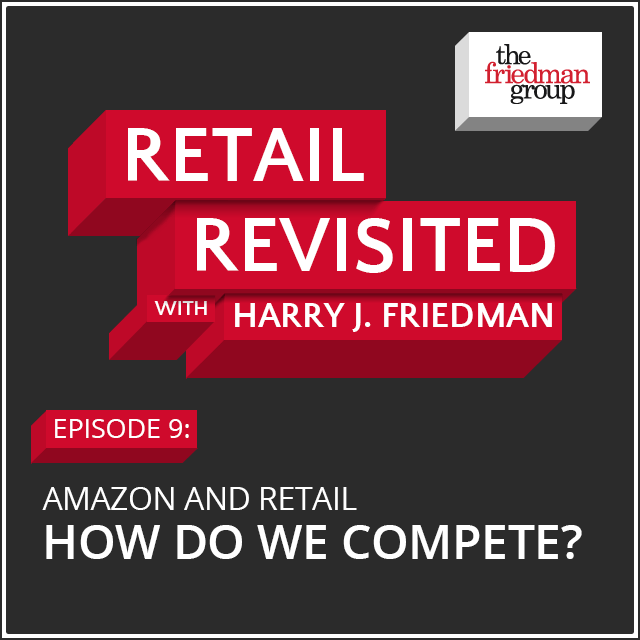
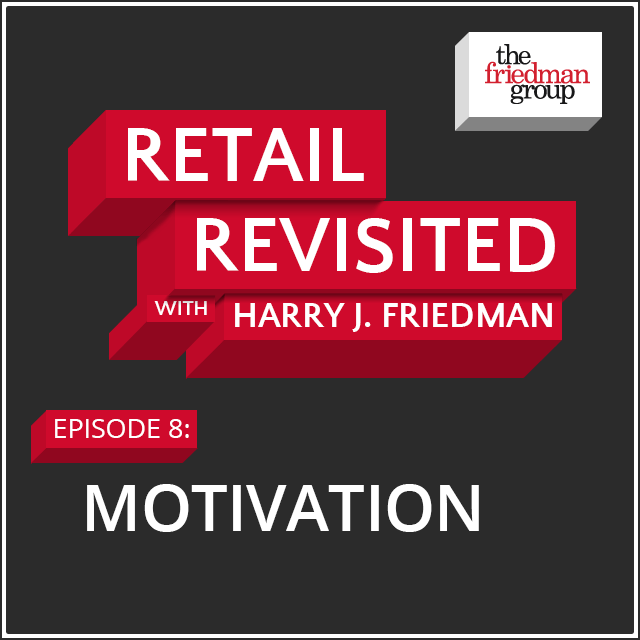
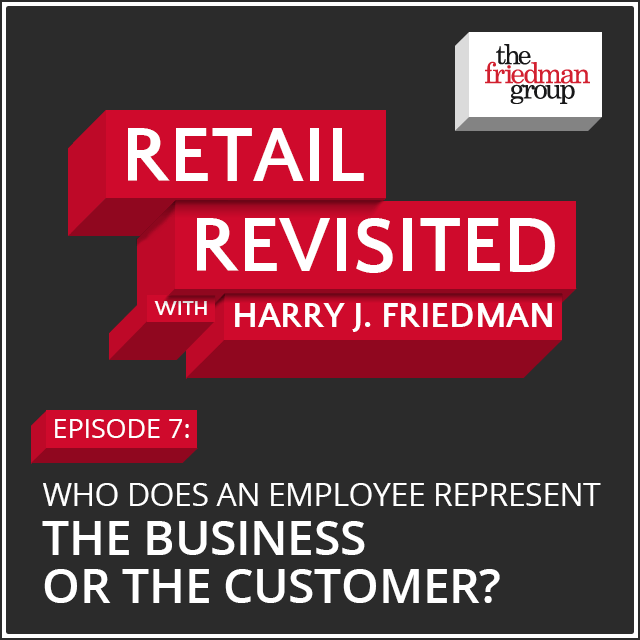
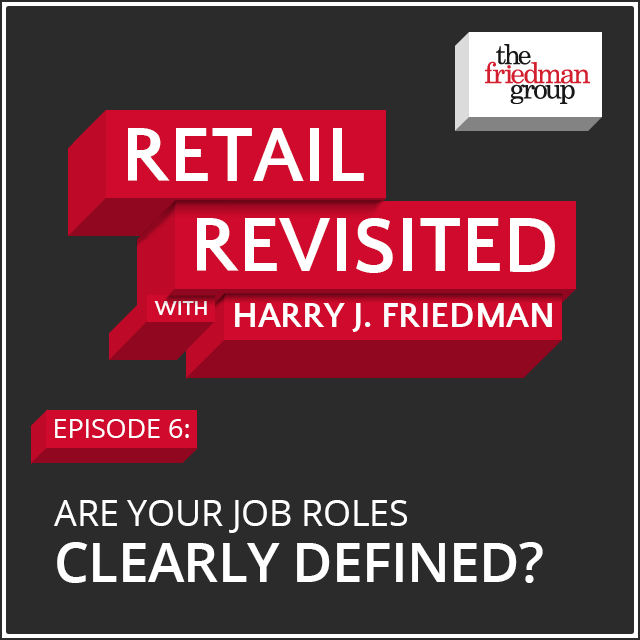
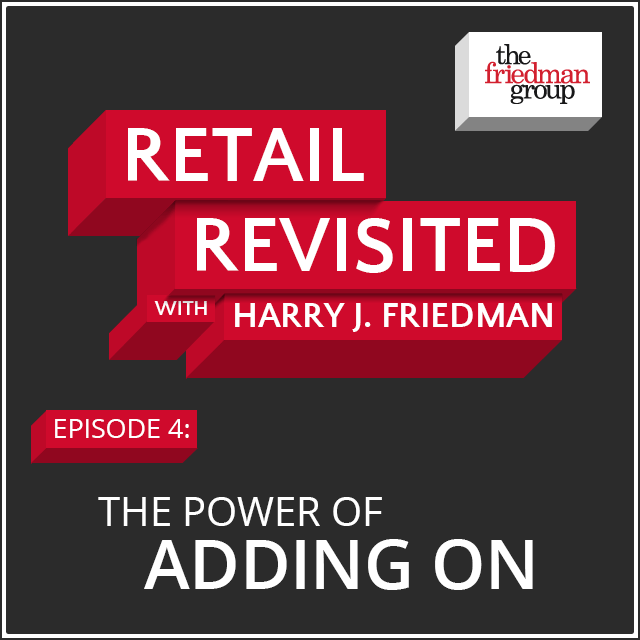
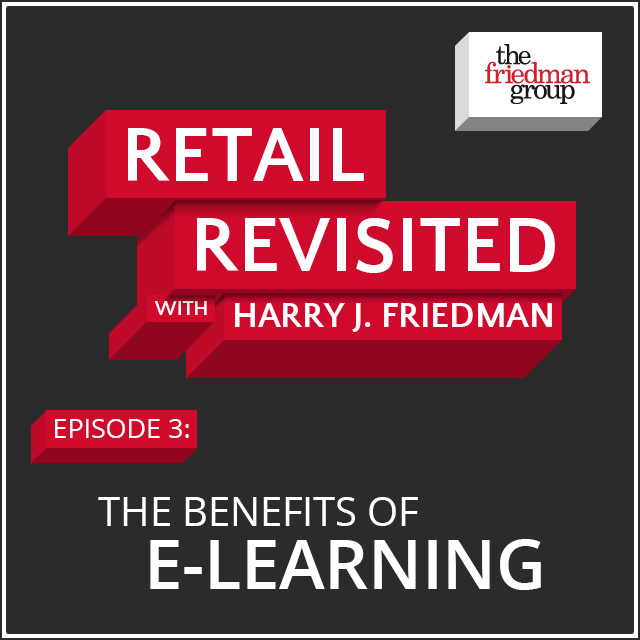
Leave A Comment